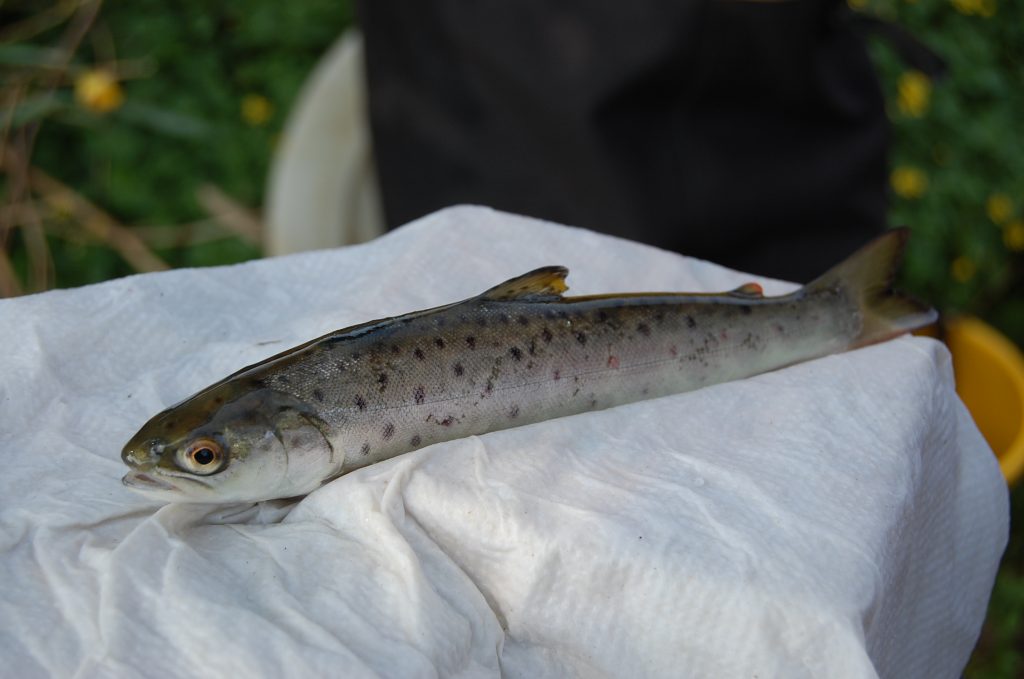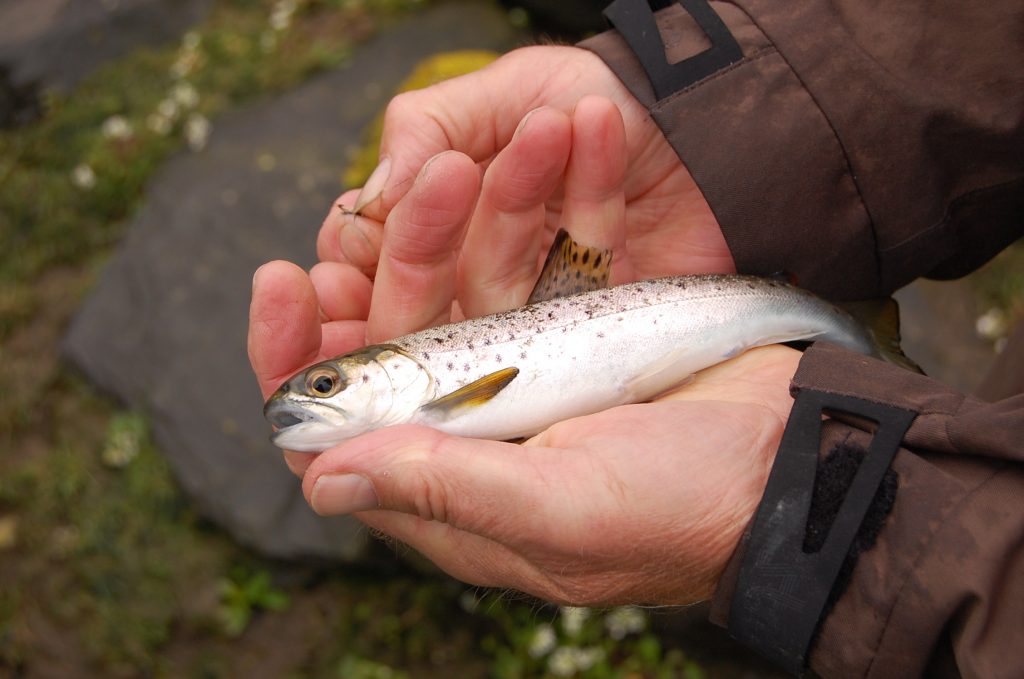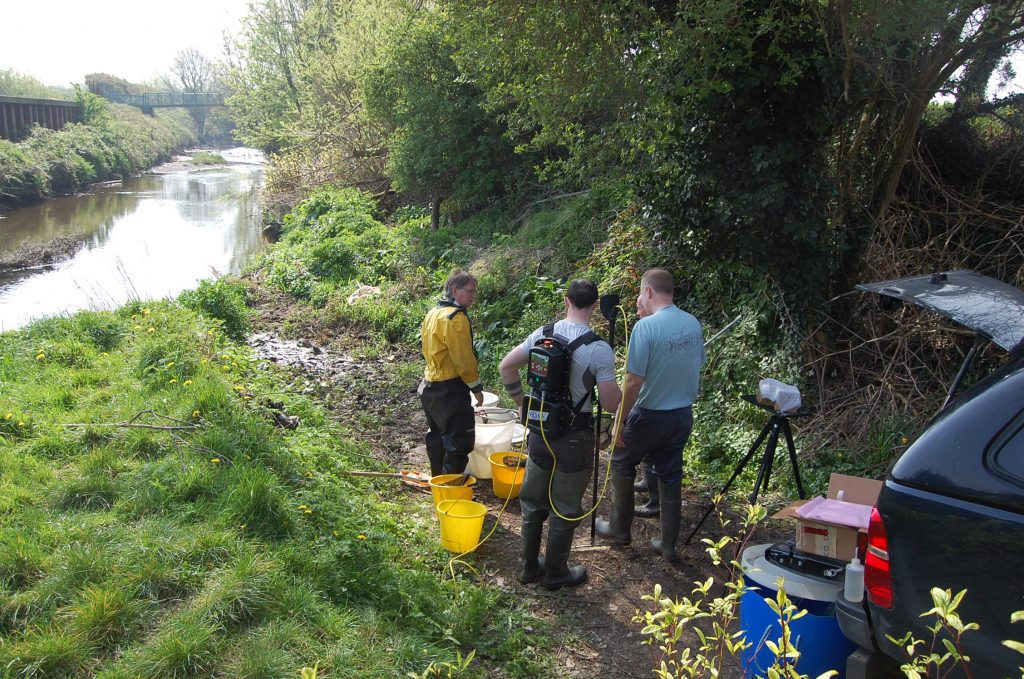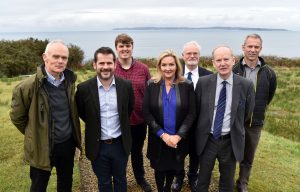This work package aims to investigate the migrations of salmonid fish in our regional seas using moored scientific recording instruments. We aim to find out what these fish do and where they go, in an attempt to study their habits and understand the population dynamics.
The fish

Salmon and Sea trout have similar biology, share some spawning rivers, and overlap in coastal waters for parts of their life cycle. Sea trout remain closer to the coast, travelling up to hundreds of miles at sea, while salmon feed thousands of miles out into the North Atlantic before returning to spawn. This creates a need for different population management strategies for the two species, and that’s where this part of the COMPASS project steps in.
COMPASS has set up a network of receiving recorder stations spanning the border in the North East of Ireland, on the coasts of from County Louth, through Carlingford and Counties Down and Antrim.
Capturing and Tracking

Next, we caught Salmon and Seatrout in all 3 phases of their life cycle using a variety of benign techniques, including electrofishing, screw traps and skilled rod and line fishing. We tagged these fish so they could be tracked when they passed one of the tracking stations placed in estuarine and coastal waters. To date, we have so far established the network of receivers, tagged the first cohort of fish and recovered the data from the first part of the project.

Next, we caught Salmon and Sea trout in all 3 phases of their life cycle using a variety of benign techniques, including electrofishing, screw traps and skilled rod and line fishing. These fish were tagged so they could be tracked when they passed one of the tracking stations placed in estuarine and coastal waters. To date, we have so far established the network of receivers, tagged the first cohort of fish and recovered the data from the first part of the project.
We tagged over 130 sea trout in 2018. The second year of fish tagging is under way and we’ve tagged another 160 further juvenile salmon and sea trout in 2019 to date. The tracks of these fish will lead to a better understanding of the migration of these animals in our local waters. This information will be used to map their migrations from their freshwater stages into estuarine and marine environments. We hope that the success rate of migration will shed some light on the causes of mortality, such as predation, environmental conditions or human activity. The 2019 salmon tracking will set the scene for the SeaMonitor project to tag further salmon in 2020 and follow them out to the open ocean on their northward migration
The next stages
We will be combining tag location and temperature data along with environmental data collected from the COMPASS network of buoys and well as other monitoring networks. This will provide datasets to allow preliminary investigation of the likely migration route of these fish, along with the marine layer the fish are using to travel.
Hopefully, this project will help us understand, support and protect this important fish family for future generations to come.

